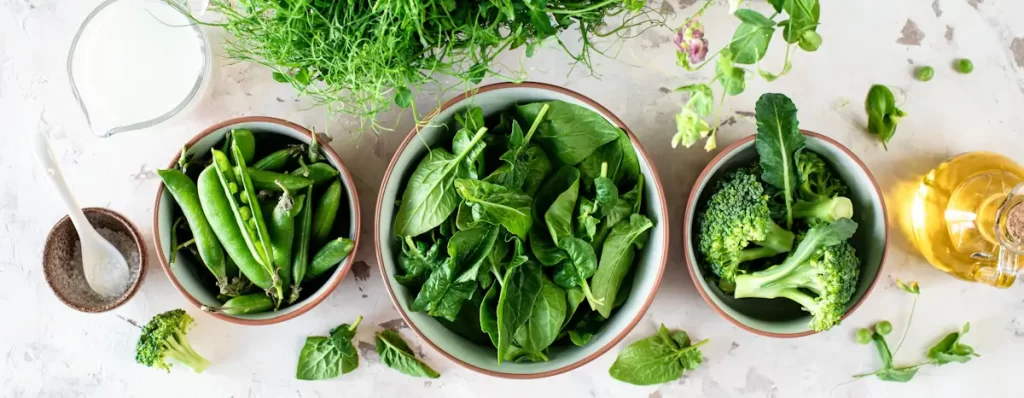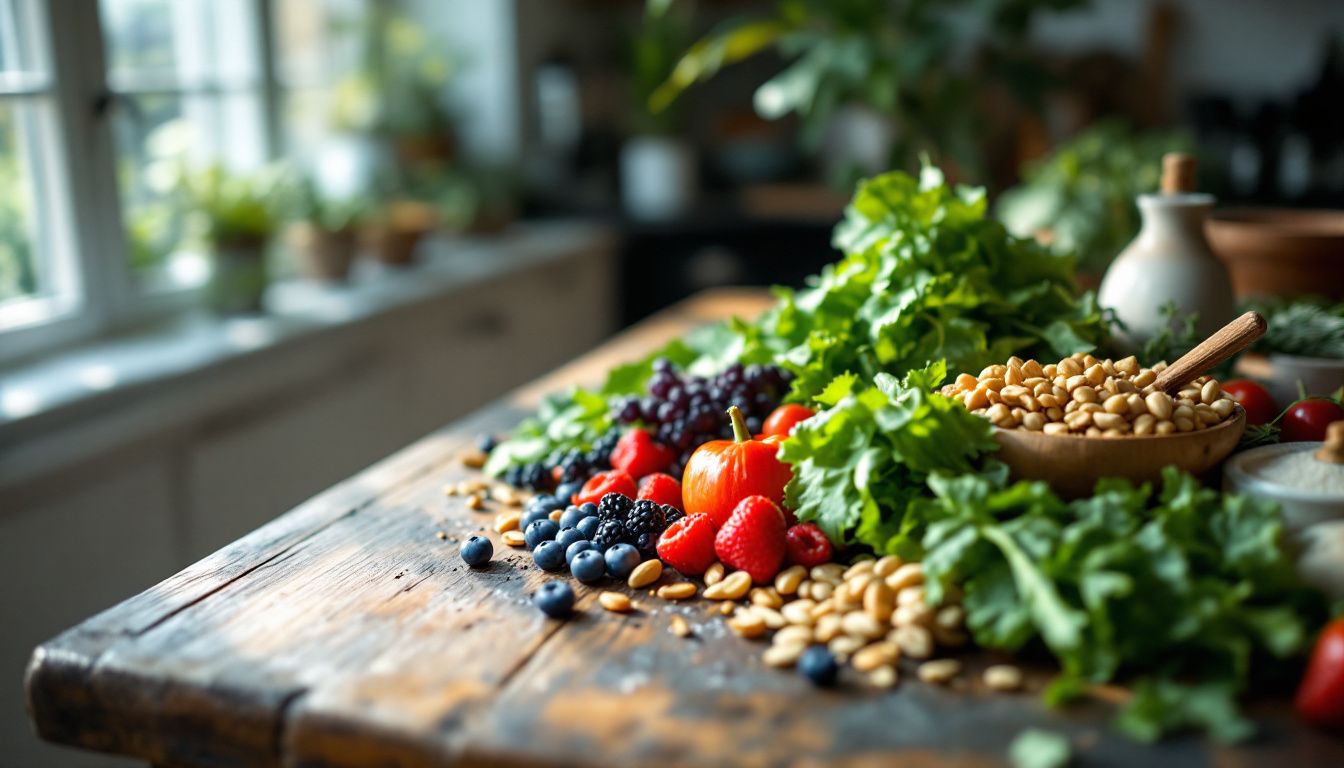Eating foods that calm inflammation can improve your health. Many natural options are full of nutrients that fight harmful processes in the body.
Thank you for reading this post, don't forget to subscribe!Berries
Berries like strawberries, blackberries, blueberries, and cranberries pack a punch against inflammation. They are rich in antioxidants and fiber, which support the immune system. Studies from 2018 suggest phytochemicals in berries may slow cancer development by reducing harmful cell activity.
Overweight adults eating strawberries showed lower C-reactive protein (CRP) levels—a marker of chronic inflammation linked to heart disease.
The vibrant colors of these fruits come from compounds called anthocyanins. These powerful antioxidants fight inflammatory processes and oxidative stress. Snack on them raw or toss into smoothies for an easy way to enjoy their benefits…
Next up—Fatty Fish!
Fatty Fish
Berries are packed with antioxidants, but fatty fish is another anti-inflammatory powerhouse. Salmon, sardines, herring, mackerel, and anchovies stand out. These fish contain omega-3 fatty acids like EPA and DHA.
Both play a key role in reducing inflammation.
EPA and DHA turn into compounds called resolvins and protectins. These help calm inflammatory responses in the body. Studies show eating salmon or taking omega-3 supplements lowers CRP levels—a marker linked to chronic inflammation.
Add these to your meals twice a week for heart health and pain relief benefits!

Leafy Greens
Fatty fish offers powerful omega-3s, but leafy greens like spinach and Swiss chard bring their own anti-inflammatory magic. Spinach packs lutein, iron, and vitamin K—nutrients that can protect against macular degeneration as you age.
These dark leafy greens fit seamlessly into an anti-inflammatory diet.
Swiss chard is a colorful powerhouse too. It’s rich in vitamins A, C, K, magnesium, and potassium—all key for reducing inflammation. Adding leafy greens to your meals supports heart health and fights chronic diseases like type 2 diabetes.
Don’t miss the chance to boost your plate with these nutrient-packed vegetables!
Nuts and Seeds
Nuts and seeds help reduce inflammation. They contain unsaturated fats, fiber, and minerals that support the body. Regular consumption lowers risks of cardiovascular disease and diabetes.
For example, almonds and walnuts are packed with healthy nutrients like vitamin E.
Pumpkin seeds, sunflower seeds, or flaxseeds boost heart health. These small powerhouses also improve digestion due to their fiber content. Studies show they reduce inflammation markers in the body—offering long-term health benefits for a balanced diet.
A handful of nuts each day can keep your heart strong.
Whole Grains
Whole grains, like oats, brown rice, and whole-wheat bread, are packed with dietary fiber. They also contain antioxidants and phytochemicals that help fight inflammation in your body.
Studies back this up—31 randomized trials found eating whole grains significantly lowered CRP levels, a key marker of inflammation.
Adding more whole grains to meals can improve your health. These foods may lower inflammatory markers linked to chronic diseases like heart disease or metabolic syndrome. Swap white bread for whole wheat or try quinoa instead of refined carbs at dinner…
small changes make a big difference!
Specific Benefits of Anti-Inflammatory Foods
Eating anti-inflammatory foods can lower the risk of chronic illnesses like heart disease and diabetes. They support your body by fighting harmful inflammation and boosting overall health.
Omega-3 Fatty Acids in Fish
Omega-3 fatty acids in fish, like salmon, mackerel, and sardines, help fight chronic inflammation. These healthy fats—EPA and DHA—lower CRP levels, a marker of inflammation linked to heart disease.
The American Heart Association suggests eating at least two servings of fish each week for better health.
Long-chain omega-3s also support brain function while reducing the risk of cardiovascular disease. Fish oil supplements can be an option if fresh fish isn’t accessible. Studies show these fats are key for preventing illness by lowering inflammatory cells in your body.
Antioxidants in Berries and Greens
Fish rich in omega-3s can fight inflammation, but berries and greens offer powerful benefits too. Strawberries, blueberries, and raspberries pack antioxidants that target harmful free radicals.
These fruits lower chronic inflammation linked to heart disease and other illnesses.
Leafy greens like spinach and kale contain polyphenols and vitamins C and E. These nutrients reduce inflammatory markers in the body. Adding a handful of these foods to your meals boosts protection against cellular damage while promoting overall healing.
Fiber in Whole Grains and Nuts
Whole grains like oatmeal, quinoa, and brown rice contain fiber. This helps reduce inflammation in the body while supporting digestion. Fiber also keeps blood sugar levels steady and supports heart health.
Including whole grains in your diet lowers the risk of chronic diseases like heart disease.
Nuts such as almonds and walnuts also offer plenty of fiber and healthy fats. These nutrients work together to combat inflammation. They can be eaten as a snack or added to meals for an anti-inflammatory boost.
Incorporating Anti-Inflammatory Foods into Your Diet
Make small changes to your meals. Add colorful fruits, fresh vegetables, and healthy oils to your daily diet for better health.
Smoothies and Juices
Smoothies packed with anti-inflammatory foods are quick and delicious. Blend 1 cup of berries, a handful of leafy greens, half an avocado for healthy monounsaturated fats, and some citrus fruits like oranges for vitamin C.
These ingredients help reduce inflammation while boosting nutrients in your diet.
Juices can also be effective when loaded with fruits and vegetables high in antioxidants. Mix carrots, bell peppers, and green tea to fight chronic inflammation. Aim for three different colors in each drink to ensure a variety of vitamins and minerals.
This approach supports heart health and weight loss goals effortlessly.

Salads and Whole Meals
Mix leafy greens like spinach, kale, or arugula with colorful fruits and vegetables. Add citrus fruits, bell peppers, and berries for a boost of antioxidants and vitamin C. Toss in cruciferous vegetables like Brussels sprouts for added anti-inflammatory benefits.
Use olive oil as a healthy dressing option rich in monounsaturated fats.
Pair salads with whole meals that include fatty fish like salmon or mackerel to get omega-3 fatty acids. Sprinkle nuts and seeds such as walnuts or flaxseeds for fiber and healthy oils.
Top dishes with spices like turmeric or ginger to enhance flavor while fighting inflammation naturally… A great way to balance your diet without sacrificing taste is by choosing snacks wisely next!
Snacking Options
Chocolate-Peanut Butter Energy Bars are a great option. They combine nut butters, oats, and dark chocolate. These snacks fight inflammation and satisfy your sweet tooth. They also boost heart health, packed with vitamin E from nuts and antioxidants from cocoa.
Avocado Hummus is creamy and nutritious. Made with chickpeas, olive oil, and avocado, it’s loaded with healthy monounsaturated fats. Pair it with whole-grain crackers or sliced bell peppers for a fiber-rich snack that keeps you full longer while reducing chronic inflammation risks.

Foods to Avoid to Reduce Inflammation
Limit fried snacks, sugary drinks, and processed items—they can trigger inflammation… learn which foods to skip for better health!
Processed Sugars and Meats
Processed sugars trigger inflammation in the body. Foods with added sugar, like baked goods, soda, and fruit drinks, can raise blood sugar levels quickly. Over time, this leads to chronic inflammation and weight gain.
Sugar-sweetened beverages are especially harmful as they add empty calories without nutrition.
Processed meats such as bacon, sausage, and hot dogs also cause inflammatory reactions. They contain high amounts of saturated fats and preservatives. Studies link these foods to heart disease and other chronic diseases like Alzheimer’s.
Avoiding trans fats found in fried or processed meat helps protect your overall health.
Refined Carbohydrates
Refined carbohydrates, like white bread and sugar-sweetened beverages, can trigger inflammation. They cause blood sugar levels to spike quickly. This leads to higher amounts of inflammatory markers such as CRP (C-reactive protein) and IL-6 in the body.
Diets full of refined carbs are common in Westernized eating patterns. French fries, pastries, and candy also fall into this category.
Reducing these foods may help fight chronic inflammation linked to diseases like heart disease or diabetes. Replacing them with whole grains is a healthier option. Whole grains provide fiber and nutrients without causing sharp blood sugar spikes.
Eating better helps maintain steady energy while lowering harmful effects on your body over time.
Excessive Dairy and Gluten
Too much dairy and gluten can trigger inflammation. Gluten, found in foods like white bread and pastries, may irritate the gut lining. This irritation leads to a release of pro-inflammatory cytokines.
Some individuals with sensitivities or conditions like celiac disease experience worsened inflammation due to gluten.
Dairy products, especially whole milk and cheese, are linked to chronic diseases. They contain saturated fats which may increase inflammatory markers in the body. For some people, lactose causes digestive issues that add stress to their system.
Cutting back on processed dairy and refined grains can support a healthier diet long-term.
Lifestyle Tips to Enhance Anti-Inflammatory Eating
Small changes in daily habits can make a big impact on inflammation. Focus on healthy routines that support overall well-being and balanced eating.
Adequate Hydration
Drinking enough water helps reduce chronic inflammation. Pale yellow urine shows proper hydration levels. Staying well-hydrated supports the body’s ability to fight inflammatory issues linked to heart disease and other chronic diseases.
Avoid sugar-sweetened beverages like soda, as they can worsen inflammation. Instead, choose water or green tea for added antioxidants. Aim for at least 8 glasses daily or more in hot weather or after physical activity.
Healthy hydration is a simple but influential part of an anti-inflammatory diet.
Regular Physical Activity
Exercise reduces chronic inflammation in the body. It lowers markers like interleukin 1 beta, which is linked to inflammatory diseases. Walking, cycling, or swimming improve energy levels and support a healthy diet.
A physically active lifestyle complements an anti-inflammatory diet by promoting weight-loss and reducing risks of chronic diseases like heart disease. Aim for at least 30 minutes of moderate exercise daily to maximize these health benefits.
Stress Management Techniques
Chronic stress triggers inflammation. Practicing relaxation can help reduce its effects. Deep breathing is simple but effective. Breathe in slowly, hold for a few seconds, then exhale.
Repeat several times to relax your body and mind.
Physical activities like walking or yoga also lower stress hormones. Aim for 30 minutes of moderate exercise most days of the week. Combine these with adequate sleep—7 to 9 hours nightly—to support an anti-inflammatory lifestyle and improve well-being.
Adequate Hydration for Anti-Inflammatory Benefits
Drinking enough water helps fight chronic inflammation. Dehydration puts stress on your body, which leads to higher inflammation levels. Dark urine often signals the need for more hydration.
Aim for clear or pale yellow urine as a better indicator of being well-hydrated.
Water flushes out toxins that may trigger inflammatory responses. It also keeps joints cushioned and promotes healthy digestion—both linked to lower inflammation risk. Experts recommend 8-10 glasses daily based on age, weight, and activity level.
Foods like watermelon or cucumbers can boost hydration too while adding anti-inflammatory nutrients.
Let’s now explore how exercise adds to an anti-inflammatory lifestyle!
Conclusion
Eating the right foods can help reduce inflammation and boost your health. Add berries, fatty fish, leafy greens, and nuts to your meals. Avoid processed meats, fried snacks, and sugary drinks.
Focus on simple swaps like olive oil for butter or whole grains for white bread. Small changes can make a big difference in feeling better every day!
For more insights on how proper hydration can complement your anti-inflammatory diet, check out our detailed guide on electrolytes and hydration strategies.
